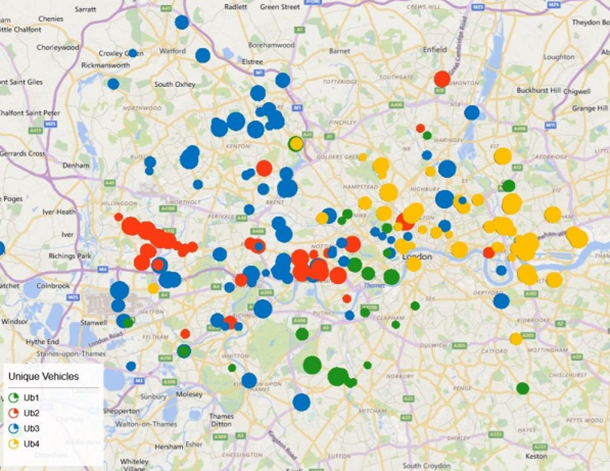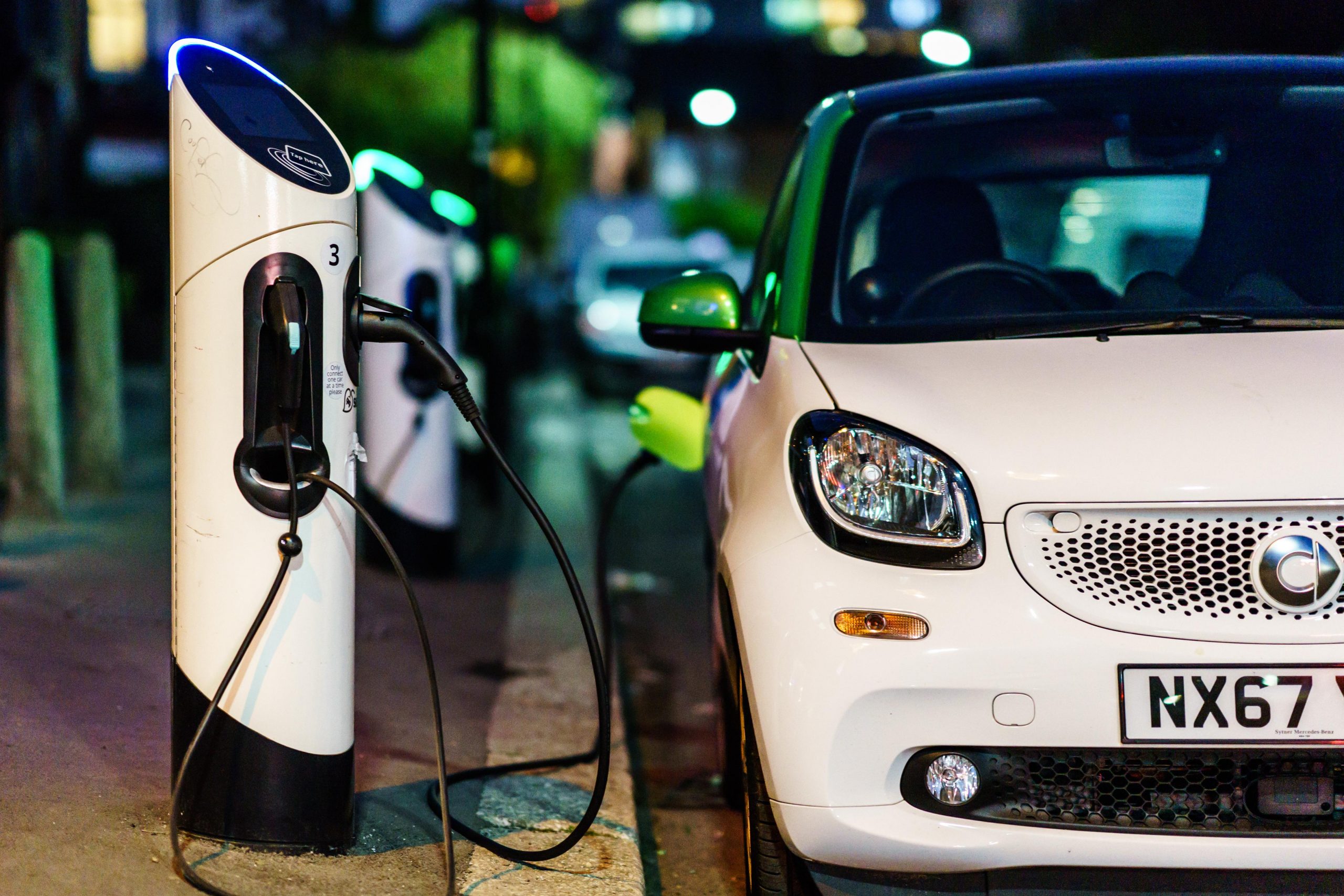Since 2012, Uber has become a significant component of London’s transport system, offering private hire journeys across the UK’s capital. Uber wanted to understand the sustainability and viability of electric vehicles (EVs). The company carried out an electric vehicle trial between August 2016 and January 2017 with over 50 partner drivers. Throughout this period, participant partner drivers drove fully electric vehicles while using the Uber app. The purpose was to understand the realities of driving a pure electric private hire vehicle in London: what works well, what are the barriers, and how could these barriers be overcome?
Challenge
Action
Energy Saving Trust was appointed by Uber to monitor and analyse the trial. Driver surveys were carried out at the start, middle and end of the trial. Two focus groups were also conducted.
On a select group of vehicles, movement data was collected to quantify where vehicles were travelling and stopping around London. Energy Saving Trust brought these sources of data together to analyse the trial. Partner drivers drove one of three different pure electric vehicles – the Nissan Leaf (24kWh and 30kWh models), the BYD e6 and the Tesla Model S.

Results
Both partner drivers and riders were impressed with the electric vehicles’ performance and comfort. Partner drivers reported that riders noticed and appreciated the benefits of the electric vehicle.
Evidence from the trial shows that considerable improvement in private hire EV charging infrastructure, as well as improvements in vehicle range, are needed to encourage significant uptake of fully electric vehicles.
As most partner drivers did not have access to off-street parking, on-street charge points were the most popular option for recharging. However, participants overwhelmingly reported a lack of charge points across the city, as well as an uneven distribution of charge points. The time taken to charge their vehicle was also a problem.
At the end of the trial, many partner drivers expressed an enthusiasm to continue using an electric private hire vehicle – assuming it continued to be economically viable. To make this possible outside of the trial conditions, installation of an extensive network of rapid charge points across London, combined with improvements in EV ranges, would be important.

Energy Saving Trust monitored the trial, engaging with partner drivers and analysing data captured throughout. We produced a final report that details and discusses the results of the trial and outlined considerations for Uber and Transport for London to better enable a successful transition to electric vehicles across the city’s private hire industry.
The project objectives were:
- Engage with partner drivers to understand their experience of using an electric vehicle.
- Analyse journey data to understand the experience of using an electric vehicle.
- Integrate all data to provide lessons learned from this trial, which will help encourage future use of electric vehicles within the private hire market.
Journeys
Throughout the trial, close to 200,000 miles were driven by the EVs, with over 35,000 unique riders.
The use of electric vehicles on the Uber app had several positive impacts. The partner drivers enjoyed taking part in the trial and were driven by the combined financial and environmental benefits of using pure electric vehicles. Over the course of the trial, use of fully electric vehicles saved more than half a tonne of nitrogen oxide and 22 tonnes of carbon dioxide, compared to a conventional hybrid vehicle.
However, the trial highlighted that several issues still limit the current viability of using a pure electric private hire vehicle in London. Since the trial, charging infrastructure has improved greatly. There are now various charge point networks across the UK, including Pod Point, Chargemaster, Ecotricity, Charge your Car and ChargePlace Scotland.
You can search for chargepoints on a range of websites including:
